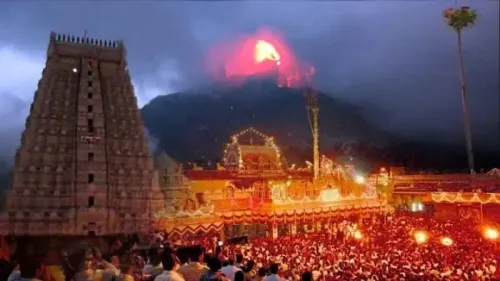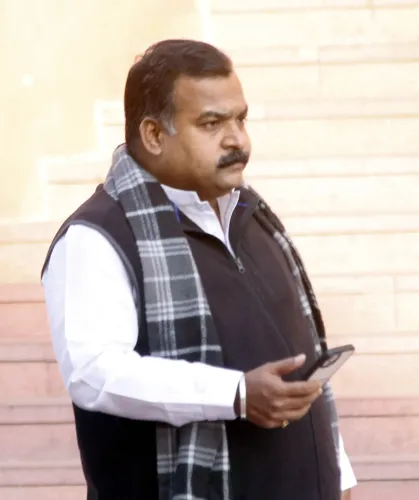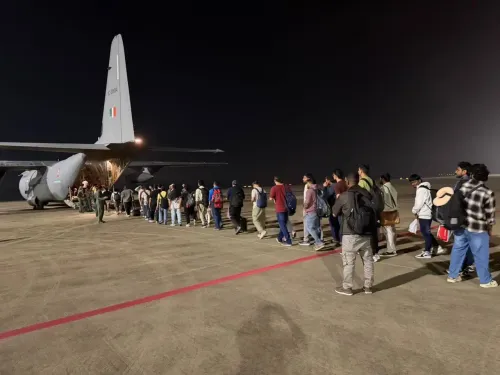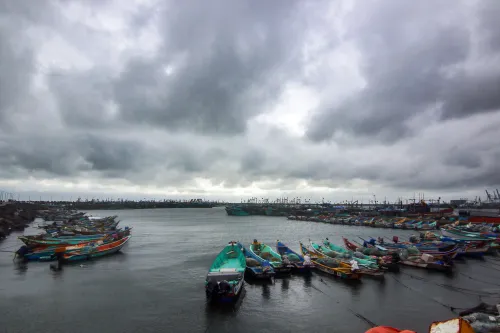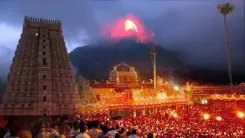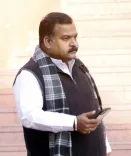What Happened When Nuns on Bail Met Kerala BJP President Rajeev Chandrasekhar?
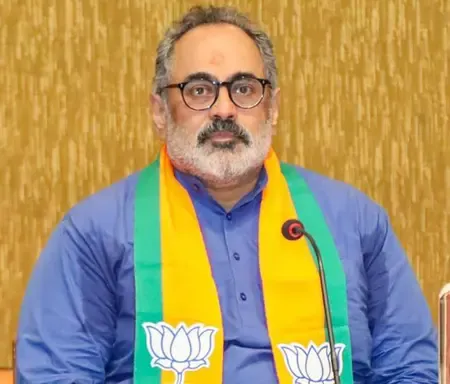
Synopsis
Key Takeaways
- Two nuns recently released on bail met with BJP leadership.
- They expressed gratitude and discussed their ongoing legal case.
- Their ordeal began when they were accused of human trafficking.
- Political support was pledged by Kerala BJP president.
- The case raises important questions about religious conversion in India.
New Delhi/Thiruvananthapuram, Aug 16 (NationPress) Just two weeks after their release on bail by a special NIA court in Bilaspur, the two nuns, accompanied by their family members, visited Kerala BJP president Rajeev Chandrasekhar in Delhi last Saturday.
Also present was Kerala BJP general secretary Anoop Antony.
Following the meeting, Antony addressed the media, stating that the purpose of their visit was to express gratitude towards the BJP and the state party president.
"They (nuns) voiced their concerns, and after listening to them, our president assured the nuns and their families that the party will support them as they navigate the ongoing case," said Antony.
A relative of the nun, Byju, mentioned that they came to convey their appreciation for the actions taken by the state BJP president.
He also updated Chandrasekhar on the nuns' worries regarding the case initiated by the NIA.
They discussed the necessity of efforts to dismiss the FIR that has been filed.
Notably, on August 2, after spending eight days in custody, the two Kerala nuns were released from Central Jail in Durg, Chhattisgarh, following a bail grant from a special NIA court in a case involving allegations of human trafficking and forced religious conversion.
Among those waiting to greet them were Chandrasekhar, lawmakers from Kerala such as Jose K. Mani, John Brittas, Santhosh Kumar, Roji M. John, Anwar Sadath, and Chandy Oommen, along with a few associates of the nuns.
Their troubles began on July 26 when the two, working at a hospital in Agra, were escorting three women from Narayanpur district in Chhattisgarh to Agra for employment as kitchen helpers in a convent.
They were intercepted at a railway station by Bajrang Dal activists, who accused them of forced religious conversion and human trafficking.
Based on the activists' complaint, police arrested the nuns and a man named Sukhman Mandavi, charging them with human trafficking and attempted religious conversion.
All three individuals are currently out on bail.
–IANS
sg/svn


